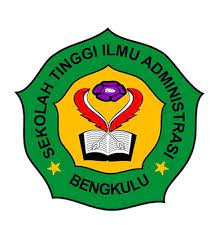Pengaruh Brand Image, Kualitas, Layanan Dan Digitalisasi Terhadap Loyalitas Nasabah Bank Bengkulu
DOI:
https://doi.org/10.56135/jabnus.v4i2.232Keywords:
Brand Image, Service Quality, Digitalization And Customer LoyaltyAbstract
This study aims to determine the Influence of Brand Image, Quality, Service and Digitalization on Customer Loyalty of Bank Bengkulu. The research sample in this study amounted to 105. The sampling technique is purposive sampling. The data used in this study is primary data. The analysis method of this study is a quantitative method using multiple linear regression analysis tools, multiple correlations, coefficient of determination, t-test and f-test which are processed using IBM SPSS software version 27. The results of the study indicate that the independent variables Brand Image, Service Quality and Digitalization simultaneously have a positive and significant influence on the dependent variable Customer Loyalty of Bank Bengkulu, the Brand Image variable partially has a positive and significant influence on the Customer Loyalty variable. The Service Quality variable partially has a positive and significant influence on the Customer Loyalty variable, and the Digitalization variable partially has a positive and significant influence on the Customer Loyalty variable.
References
Abdul Wahab, S. 2017. Analisis Kebijakan Dari Formulasi Ke Penyususnan Model-model Implementasi Kebijakan Publik. Jakarta: Bumi Aksara.
Abror Abror, D.P.Y.E.S.E. and Y.Y.S.D. 2019. Service quality, religiosity, customer satisfaction, customer engagement and Islamic bank’s customer loyalty. Journal of Islamic Marketing, 11(6).
Abu Amar Fauzi and Tatik Suryani 2018. Measuring the effects of service quality by using CARTER model towards customer satisfaction, trust and loyalty in Indonesian Islamic banking. Journal of Islamic Marketing , 10(1).
Ahmad Mardalis 2005. Meraih Loyalitas Pelanggan. Jakarta: Balai Pustaka.
Ahmad Sumiyanto 2008. BMT Menuju Koperasi Modern. Yogyakarta: PT ISES Consulting Indonesia.
Amstrong dan Kotler 2005. Manajemen Pemasaran. Jakarta: Prehalindo.
Anshori, M.. & I.S. 2017. Metodologi Penelitian Kuantitatif (1 ed.). Surabaya: Airlangga University Press.
Atun Roy Choudhury., et al 2018. Black Soldier Fly Larvae, a Viable Opportunity for Entrepreneurship. Acta Scientific Agriculture, 2(9): 11–20.
Autoridad Nacional del Servicio Civil 2021. Pemasaran Menurut Tjiptono dan Diana (2020:3), Menurut Laksana (2019:1), dan Menurut Sunyoto (2019:19). Angewandte Chemie International Edition, 6(11), 951–952.
Barnes, J.G. 2003. Rahasia Manajemen Hubungan Pelanggan. Terjemahan Andreas Winardi. Yogyakarta: ANDI.
Bawono, A. 2006. Multivariate Analysis dengan SPSS. Salatiga: STAIN Salatiga press.
Bungi, m. B. 2017. Metodologi Penelitian Kuantitatif: Edisi Kedua. Jakarata: Prenadamedia Group .
Dwi Suhartanto, C.G.I.S.S.S.S. 2019. Loyalty towards Islamic banking: service quality, emotional or religious driven. Journal of Islamic Marketing , 11(1).
Firmansyah, A. 2019. Pemasaran (Dasar dan Konsep). Pemasaran.
Ghozali, I. 2011. Aplikasi Analisis Multivariate Dengan Program SPSS. Semarang: Badan Penerbit Universitas Diponegoro.
Ghozali, I. 2018. Aplikasi Analisis Multivariate Dengan Program IBM SPSS 25 (Sembilan). Semarang, Universitas Diponegoro, .
Goh, et al 2016. Determinants of Smartphone Repeat Purchase Intention among Malaysians: A Moderation Role of Social Influence and a Mediating Effect of Consumer Satisfaction. International Review of Management and Marketing, 6(4): 993–1004.
Griffin, J. 2005. Customer Loyalty: Menumbuhkan & Mempertahankan Kesetiaan Pelanggan. Jakarta: Erlangga.
Hafish Sadiq, S.L. 2019. Pengaruh Kualitas Layanan dan Brand image Terhadap Loyalitas Nasabah Bank Negara Indonesia. Jurnal Manajemen Kewirausahhaan, 16(1).
Harahap, E., Ritonga, Z. & Harahap, A. 2020. The Effect of Training, Work Motivation, Remuneration, Work Attitude and Employee Satisfaction on Employee Productivity At PT Sumatera Berlian Motor …. International Journal of Innovative Science and Research Technology, 5(5).
Downloads
Published
How to Cite
Issue
Section
License
Copyright (c) 2025 Jepri Apizal; Idham Lakoni; Veny Puspita

This work is licensed under a Creative Commons Attribution-ShareAlike 4.0 International License.






